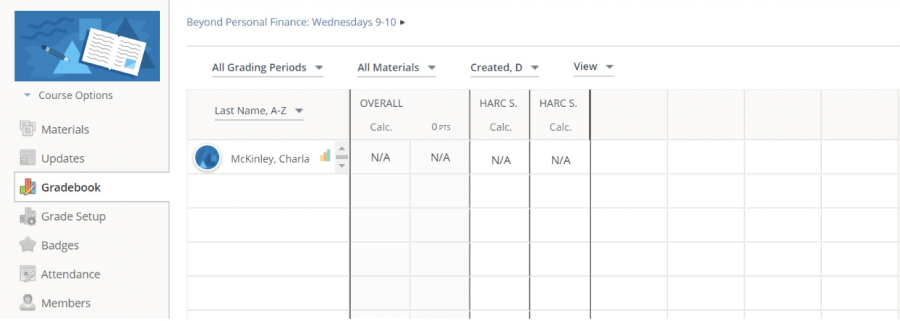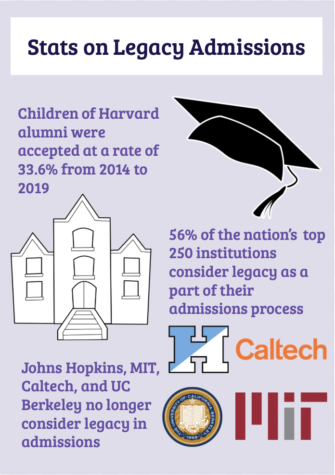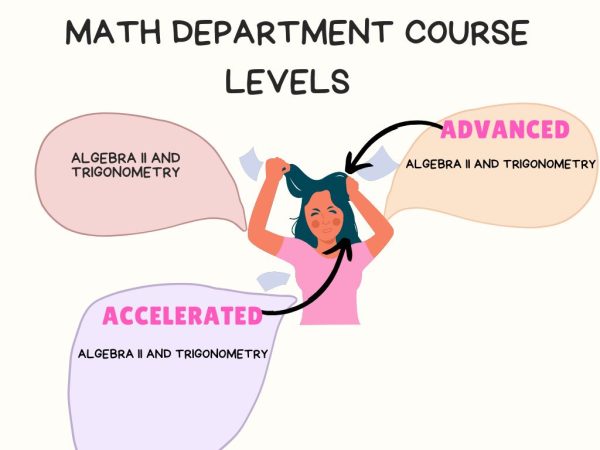Ignorance is not Bliss: Why Hackley Should Implement an Open Gradebook
Credit: Credit: Schoology Support
If Hackley were to have an open grade book, this is how it would appear on the front page of Schoology. Students would have updated access to their grades in all classes and would have the means of staying on top of their work at all times.
Currently, exposure and transparency of academic performance within the Hackley community are not ideal for most students. Though teachers and administrators are granted full access to grades, students are kept in the dark about their progress in each class. Rather than easing the constant pressure that comes with balancing school life, social life, and personal life, not knowing where they stand from an academic perspective burdens students even more.
Despite the seemingly obvious benefits of an open grading system, the Hackley gradebook continues to remain closed. An argument often made by those against an open gradebook is centered around the idea that both parents and students would become overly obsessed with academic performance, increasing anxiety and affecting mental health.
“I actually had a conversation with a teacher about the open gradebook. They pretty much told me that the reason we don’t have one is that students already worry too much about school and if they have their grades up at all times then they’ll constantly be stressed. That doesn’t make any sense to me because kids are going to worry anyway. I understand where teachers and administrators come from, but kids will always be stressed about their grades no matter what. Honestly, not knowing your grades stresses you out even more. Ultimately, an open gradebook gives you the knowledge you need to do better while also relieving unnecessary overthinking,” said sophomore Claire Esposito.
Members of administration and faculty also assert that with an open gradebook, student attitude towards learning shifts in a negative direction. Rather than seeking experience and knowledge from the content of the class, students would instead obsess over numerical grades.
“It can create an unhealthy obsession with the literal value of the grade, which no teacher is going to feel good about because that’s not really the point of learning, ” said English teacher, James Flanigan, “As a teacher, I do not relish in the process of evaluating. I think that evaluation is like a language where it means one thing to me and another thing to you. I think it would be very hard to pull off here.”
The best way to solve the dispute over the gradebook would be to improve student and teacher communication.
Beyond the mental toll that a closed gradebook has taken on the student body, many believe that an open one would help students keep track of their assessments and assignments in a far more up-to-date fashion.
“The school that I worked at before Hackley had an open gradebook, so I’ve had experience with it for five years…Whenever you pulled up Schoology, your averages were right there as soon as you logged in. One of the things you know if you’re in my class, I do a lot of discussion board posts. Sometimes when students miss them they’re sort of out of sight, out of mind. I would go through the posts every morning and mark one if you did it, zero if you didn’t. Kids caught on to the impact of not doing their work very quickly and they were more likely to follow up and do the assignment rather than forget about it since they could see what they were missing…it can give kids a sense of awareness that they’re lacking in some classes,” Flanigan said.
Teacher accountability would also heavily benefit from an open gradebook. Mistakes and incorrect entries would occur less frequently as students would be able to communicate to their teachers about inaccurate grade fluctuations.
“Why should we be kept in the dark about our own grades? That makes no sense to me. I feel like grades would increase dramatically if they weren’t purposefully hidden from students. An open gradebook would motivate so many people and even keep teachers accountable for their mistakes. I know that teachers have entered incorrect grades before, and I’ve heard of that happening to so many different students. If you see a change in your grade that isn’t accurate, it would be a lot easier to address the problem and correct those mistakes,” sophomore Caroline Didden said.
The first step to reopening this conversation is encouraging open communication between students and their teachers. A lot of information quite literally gets lost in translation when teachers do not update students on their progress. It leads to incorrect inputs in the gradebook, immense obsessions with what a student’s grade could be, and detracts from the real purpose of a class: learning.









